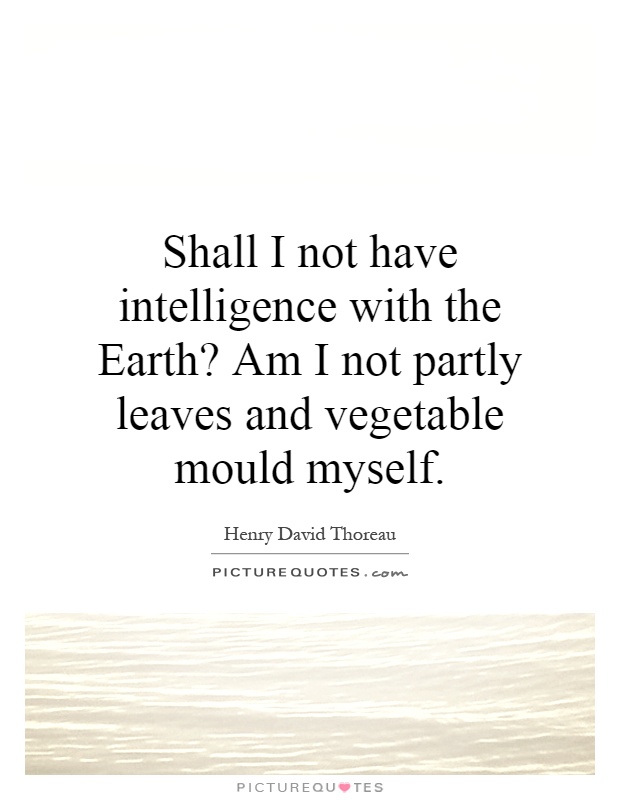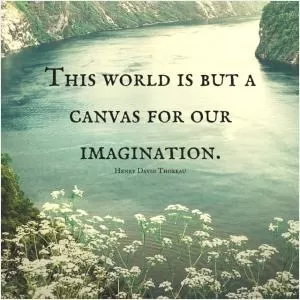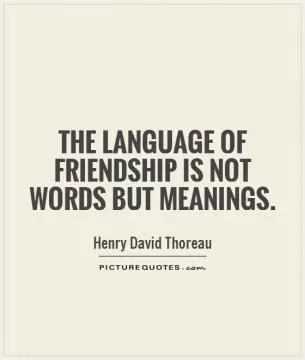Shall I not have intelligence with the Earth? Am I not partly leaves and vegetable mould myself

Shall I not have intelligence with the Earth? Am I not partly leaves and vegetable mould myself
In his famous work "Walden," Henry David Thoreau reflects on the interconnectedness of humans and nature, emphasizing the idea that we are not separate from the Earth but rather a part of it. The quote "Shall I not have intelligence with the Earth? Am I not partly leaves and vegetable mould myself" encapsulates this sentiment perfectly.Thoreau believed that humans should have a deep connection with the natural world around them, as it is where we come from and where we ultimately return. He saw nature as a source of wisdom and inspiration, and believed that by immersing ourselves in it, we can gain a greater understanding of ourselves and our place in the world.
The idea that we are "partly leaves and vegetable mould" speaks to the fact that we are made up of the same elements as the natural world. We are born from the Earth, and when we die, our bodies return to the soil, nourishing the plants and trees that grow from it. Thoreau saw this cycle of life and death as a beautiful and essential part of the natural world, and believed that by recognizing our connection to it, we can live more harmoniously with the Earth.
Thoreau's time spent living in a small cabin by Walden Pond was a testament to his belief in the importance of living in harmony with nature. He sought to simplify his life and live in close communion with the natural world, finding solace and inspiration in its beauty and tranquility. Through his observations of the changing seasons, the habits of the wildlife around him, and the intricate patterns of plant life, Thoreau gained a deeper appreciation for the Earth and all its wonders.












 Friendship Quotes
Friendship Quotes Love Quotes
Love Quotes Life Quotes
Life Quotes Funny Quotes
Funny Quotes Motivational Quotes
Motivational Quotes Inspirational Quotes
Inspirational Quotes